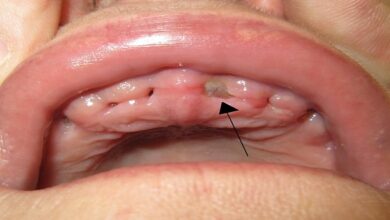Treatment for Alcohol Problems: Finding the Right Approach

Alcohol consumption is a common habit that is often considered to be socially acceptable. However, for some individuals, alcohol consumption can quickly escalate into a serious problem that affects their physical, emotional, and social well-being. Alcohol addiction, also known as alcoholism, is a chronic disease that can have devastating consequences if left untreated. Fortunately, various treatment options are available for individuals struggling with alcohol problems. This article will explore some of the most effective approaches for alcohol addiction treatment.
Understanding Alcohol Addiction
Before delving into the treatment options for alcohol addiction, it is essential to understand the nature of the problem. Alcohol addiction is a chronic disease characterized by a compulsive desire to consume alcohol despite adverse consequences. Alcohol addiction can lead to physical dependence, which means an individual may experience withdrawal symptoms if they try to stop drinking. Symptoms of alcohol withdrawal can range from mild to severe and may include anxiety, tremors, seizures, and delirium tremens.
Treatment Approaches for Alcohol Addiction
There is no one-size-fits-all approach to treating alcohol addiction. The most effective treatment approach will depend on various factors, including the severity of the addiction, the individual’s medical history, and personal preferences. Here are some of the most common treatment approaches for alcohol addiction:
Medication-Assisted Treatment (MAT)
Medication-Assisted Treatment (MAT) is a comprehensive approach that combines medication with behavioral therapy and counseling. MAT has been proven to be highly effective in treating alcohol addiction. Medications used in MAT include naltrexone, acamprosate, and disulfiram. Naltrexone works by blocking the pleasurable effects of alcohol, while acamprosate helps to reduce cravings for alcohol. Disulfiram works by causing unpleasant side effects, such as nausea and vomiting, when an individual consumes alcohol.
Behavioral Therapy
Behavioral therapy is a treatment approach that focuses on changing an individual’s thought patterns and behaviors related to alcohol consumption. Several types of behavioral therapy can be used to treat alcohol addiction, including cognitive-behavioral therapy (CBT), motivational interviewing (MI), and contingency management. CBT is a therapy that helps individuals identify and switch negative thought patterns and behaviors that contribute to alcohol addiction. MI is a collaborative approach that focuses on building an individual’s motivation to change their behavior. Contingency management is a reward-based approach that encourages individuals to make positive changes by offering incentives for abstinence from alcohol.
12-Step Programs
12-Step programs, such as Alcoholics Anonymous (AA), are self-help groups that support individuals struggling with alcohol addiction. The 12-Step program is based on principles that promote abstinence from alcohol and encourage individuals to take responsibility for their behavior. 12-Step programs also provide a sense of community and support that can be helpful in the recovery process.
Holistic Approaches
Holistic approaches to alcohol addiction treatment focus on the individual’s physical, emotional, and spiritual well-being. Holistic approaches may include yoga, meditation, acupuncture, and massage therapy. These approaches can help individuals manage stress and anxiety, common triggers for alcohol consumption.
Choosing the Right Treatment Approach
Choosing the right treatment approach for alcohol addiction can be challenging. Working with a healthcare professional who can help assess your needs and determine the most effective treatment approach is essential. When choosing a treatment approach, consider your addiction’s severity, medical history, and personal preferences.
It is also essential to consider the level of support you will need throughout the recovery process. Treatment for alcohol addiction may require ongoing support. This can make it difficult for individuals to recognize the need for treatment and seek help independently.



